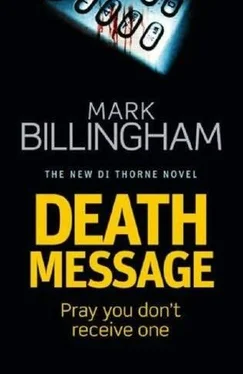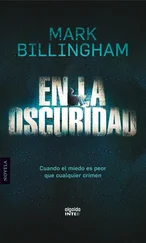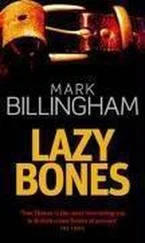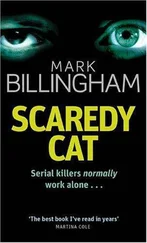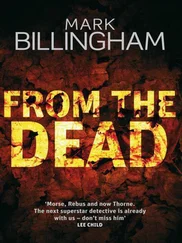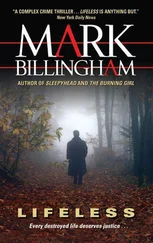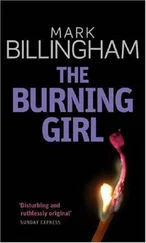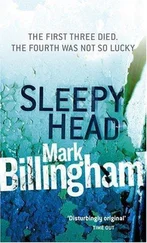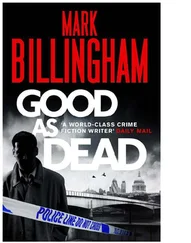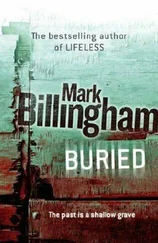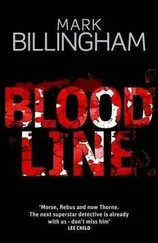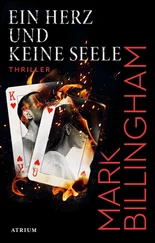He dug in his pocket for the change to buy a newspaper, thinking about paying back what was owed. And about how you couldn’t let down the people who counted on you, even after they’d gone.
‘It suits you, sitting there,’ Nicklin said. ‘You look… comfortable.’
‘Meaning?’
‘Five years ago. You’d like to have been the one sitting where the judge was, wouldn’t you? Putting me away…’
They were seated in the Adjudications Room on Long Lartin’s Segregation Unit. There were no legal visits on a Saturday, and normally a request for any kind of visit at such short notice would have been denied. But Thorne had explained the situation to everyone necessary; had sucked up shamelessly to the prison’s police liaison officer; and had finally managed to wangle a session with Stuart Nicklin, albeit in somewhat unusual surroundings.
The room was, in essence, a miniature court.
Here was where all the prison’s internal disciplinary matters were settled and punishments meted out when necessary. The room was high-ceilinged and windowless. Dark furniture on a thick blue carpet; a gold pattern snaking around its edge below the wood-panelled walls. Thorne was sitting at the centre of a T-shaped table where the governor, or more often his deputy, would preside. There was a metal water jug and glasses on a tray. There were rows of notebooks and pencils.
‘I think the judge made a pretty good job of it,’ Thorne said.
Nicklin stared at him from ten feet away, at the tail end of the ‘T’. ‘But how many times do they fuck up? How often does all your hard work count for nothing? It must really hurt to see people like me get off because someone gets the procedure wrong. To watch some overpaid legal team arguing that their client isn’t mentally competent to stand trial, when you know they’re as sane as you are.’
‘I wouldn’t go quite that far,’ Thorne said. ‘Certainly not in your case. Besides which, you didn’t get away with it.’
‘Can’t blame a bloke for trying though, can you?’
Nicklin was right, of course. On those occasions when months, maybe years, of graft came to nothing in the face of ineptitude, or when the law proved itself to be more of an arsehole than an ass, it hurt like hell. Thorne’s major fear, five years before, had been that the issue of mental competence would override all others. That Nicklin would escape sentence and spend the rest of his life as patient rather than prisoner.
Among many other things, Nicklin was a conman; an individual who could be powerfully persuasive, one whose influence had driven others to kill for no other reason than it had made him feel good. But, thankfully, the jury had seen through the ‘mad not bad’ sham. Or if not, they had decided that killing because the voices in your head told you to made you no more deserving of a fluffy pillow and paper slippers than anyone else. Made you no better than the killer who did it because of greed or racial hatred, or because someone had looked at his girlfriend.
‘Why does Marcus Brooks want to kill a police officer?’ The question Thorne had come here to ask.
‘Why not?’
Thorne poured himself a glass of water.
‘Oh, right,’ Nicklin said. ‘Sorry.’ He straightened in his chair, mock-sombre. ‘All very serious now, is it? Could I just ask first: why is the life of a police officer any more important than any other? Than a little old lady’s or a child’s. Or mine.’
‘Now you’re just being ridiculous.’
‘I’m right though, aren’t I? I bet things have really gone into top gear, now it’s about a copper. I bet things are frantic.’
‘Did you tell Brooks to do it?’
‘I never tell anyone to do anything.’
‘Course not.’
‘I talk to people, that’s all.’ Nicklin looked up at the ceiling. ‘Invite them to weigh up their options.’
‘Right,’ Thorne said. ‘Until they start believing the ideas you’ve put in their heads are their own.’ He remembered a superintendent telling him once that this was the essence, the trick, of good leadership. Thorne knew that the man sitting opposite him had no shortage of ideas. A dark tangle of them; barbed and brilliant.
He took a deep breath and blinked away the face of Charlie Garner.
‘Tell me why I should help you.’ Nicklin scratched at the surface of the table. ‘Why should I tell you anything other than how far you can stick your questions up your arse?’
‘Because this is what you wanted all along, isn’t it? To get me involved enough that I’d come here looking for help. Well, I’m involved.’
Nicklin smiled. ‘Twice in two days.’
‘I understand about the bikers-’
‘Friend of yours, is he? This police officer?’
‘No.’
‘I’m relieved to hear it. Wouldn’t want you knocking around with too many bad apples.’
‘You saying he’s bent?’
‘Look, Marcus is hardly what you’d call a model citizen,’ Nicklin said. ‘Most decent people wouldn’t want him living next door, you know? But he didn’t murder anybody.’ He grinned. ‘He’s making up for it now, though, obviously.’
‘Come on, how many people in here claim to be innocent?’
‘Plenty. But not for six years, and not to each other.’ Nicklin leaned forward, his head only inches above the table. ‘You get to know people intimately in here. You know when to look away from someone and when to let someone in on a confidence. After a while you can tell who’s had a shit just from the smell drifting along the landing. And like I said, eventually the bright ones realise there’s no point lying.’
Thorne took a sip of water. It was tepid; tasted metallic, old. ‘They went through all this when he was arrested: the story that he was fitted up.’
‘They didn’t look hard enough,’ Nicklin said. ‘Nobody believed him. But even if they had, they would have presumed that the two “police officers” were bogus – members of a rival gang or whatever.’ Despite the thick carpets and the panelling, there was the slightest of echoes: the low wheeze of Nicklin’s voice rising up from the polished surface of the table towards the elaborate cornicing and the ceiling rose. ‘Nobody considered it seriously enough to come to the more obvious conclusion.’
Thorne didn’t need it spelling out: nobody could play the part of a bent copper better than a bent copper.
Nicklin could see that Thorne had got it. ‘Hardly the most fiendish of plans, was it? They just gave false names. I don’t know if they had fake warrant cards, or if Marcus even bothered to ask. Doesn’t really matter now, does it?’
‘It’s starting to matter to quite a lot of people,’ Thorne said.
If Nicklin was right, then clearly Marcus Brooks would not have held just the Black Dogs responsible for the death of his family. He would also have blamed the people who got him sent to jail in the first place; those whose actions had ensured that his girlfriend and son would one day become targets. That he would not be around to look after them when it happened.
Thorne could understand why Brooks thought these men had to die. ‘I don’t suppose you know the names of these two men? Their real ones, I mean.’
Nicklin shook his head. ‘Marcus didn’t know their real names six months ago. I’m guessing he does now, though.’
Jennings and Squire. Thorne wondered which one Paul Skinner had been.
‘“Want to kill”,’ Nicklin said suddenly. ‘You said “ want to kill a police officer”. So I gather that Marcus hasn’t got round to it yet.’
‘Well, you know, seeing as he gave us advance warning, we thought we might try to do something about it.’
‘I wouldn’t bother.’
Читать дальше
